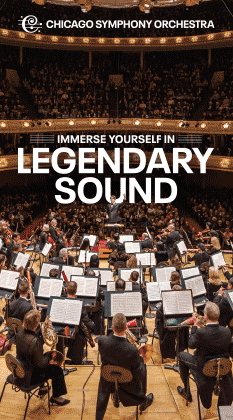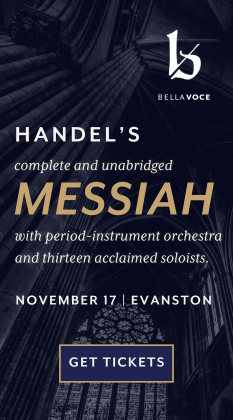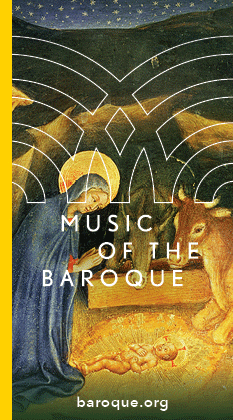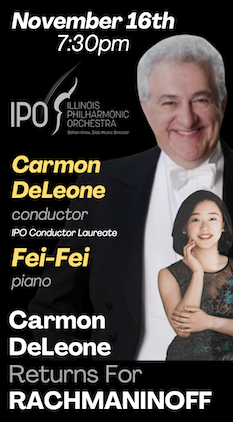Fringe Opera uncovers a masterwork with Hindemith’s “Christmas Dinner”
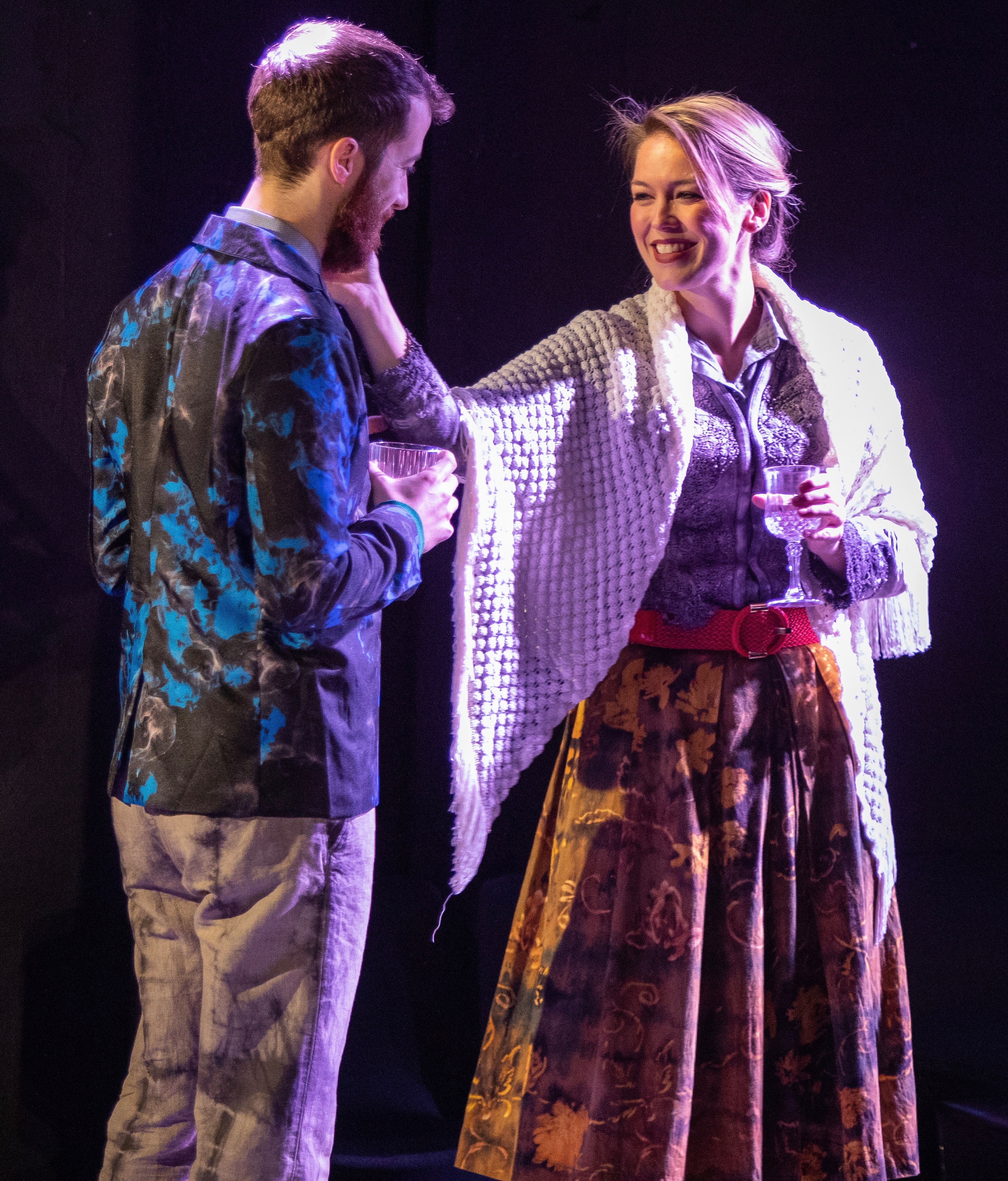
You know, nothing says Christmas like Paul Hindemith.
Actually, few people would associate the severe German composer with holiday conviviality and celebration. Yet in 1963, Hindemith wrote an opera, The Long Christmas Dinner, based upon Thornton Wilder’s play of the same name.
And in Chicago Fringe Opera’s brilliantly effective staging Friday night at the Chopin Theater, Hindemith’s little-known, one-act work is revealed as a small masterpiece and one of the composer’s finest inspirations.
Running a concise 49 minutes, the opera depicts a 90-year span in the life of the Bayard family in the form of a single continuous Christmas dinner encompassing four generations. Wilder wrote the libretto adapting his play, and the facility and economy with which the opera handles eleven different characters (Hindemith calls for three singers to double roles) is an extraordinary achievement, with each etched in quick yet effective brushstrokes.
The opera begins with the happy young newlyweds Lucia and Roderick celebrating their first Christmas together, along with Roderick’s elderly mother, and his cousin and business partner Brandon. As the years go by, children are born and characters pass away.
Yet despite the potential for mawkish treatment, The Long Christmas Dinner is wholly unsentimental. Christmas cheer, domestic warmth, business confidence and the joyful birth of children give way to disillusion, family strife, war, rejection, loneliness and death. There is a cyclical feel to the Bayard generations repeating themselves, in their lives as well as their words, with the temporal shadows dominant (“Time passes so fast” and “How long have we been here in this house?”).
The opera is imbued with a sense of the inevitable impermanence of all things. Yet the material is handled with a gentle poignance and nostalgia that make The Long Christmas Dinner all the more affecting for its restraint and distancing irony.
Hindemith’s music is masterful—a ceaseless contrapuntal flow that manages to incorporate carols while reflecting familial joy, youthful vivacity and rebellious high spirits, as surely as the plaintive melancholy of loneliness and piercing old age.
It’s unfortunate that Chicago Fringe doesn’t possess the resources to present the orchestral version of this opera since Hindemith’s scoring is a marvel, with delicate interweaving of wind lines that echo and enhance the characters and themes. Still, even reduced to just a single piano, Anatoliy Torchinskiy’s superb keyboard playing conveyed the brilliance and humanity of Hindemith’s score with sensitivity and dramatic impact.
Jessie Lyons was simply terrific in the double lead role of Lucia I and II. Singing with a bright, youthful soprano, she was the embodiment of the confident, perky wife and (soon) mother, while also managing to subtly suggest Lucia’s mature aging and backward-looking nostalgia. She later returned to play Lucia’s own granddaughter, painting her with fresh, girlish vigor and youthful innocence.
Baritone Gabe Di Gennaro did equally versatile double duty as Lucia’s hearty and convivial husband Roderick, as well as his ill-fated soldier grandson, Sam.
As their son, Charles, Jonathan Zeng brought his vibrant tenor to the role, as well as a fiery dramatic edge in his vehemently angry exchanges with his son, Roderick II.
In the double role of Mother Bayard and cousin Ermengarde, mezzo Tierra Whetstone’s words were a bit muddled early in the evening. She projected with greater clarity as the performance unfolded, and brought a touching, credible frailty to the aging matriarch. She also proved effective in the role of Ermengarde, the surviving cousin who has the opera’s last word.
As Roderick II, tenor Thomas Bailey etched a lively cameo as the eternally rebellious, partying son. Zachary Angus as Brandon, Naomi Brigell as Charles’s sister Genevieve and Megan Fletcher as his wife, Leonora were equally assured vocally and dramatically, rounding out the excellent young cast.
George Cederquist’s resourceful staging was inspired in its cost-effective utility. The action takes place on a square low-rise track that encircles the pianist and a few audience seats. As new characters enter, they step onto the track and walk around the room; as older characters die, they step off and disappear into the shadows.
Even by the usual close quarters of Fringe’s blackbox Studio Theater space, the action here is intensely intimate, the singers performing inches away from audience members’ noses.
_________
The Hindemith opera was preceded with a selection of “Parlor Songs” that pre-echoed the nostalgic atmosphere of the opera.
As baritone Angus said in his introduction, the idea was to hearken back to a simpler, pre-television, pre-internet age when families would gather and sing around the piano at holidays. The discerning selection of art songs was a testament to the smart, informed tastes of Fringe members.
Angus led off the set in worthy style with a poised and dignified rendering of Charles Ives’ “The Children’s Hour.” Tenor Bailey followed with a nostalgic take on Ben Moore’s “Little One” from the cycle Dear Theo.
Other highlights included soprano Rachael Long’s spirited take on Elizabeth Rudolph’s “4November2002,” tenor Zeng’s sensitive performance of Ivor Gurney’s elegiac “Sleep,” and Jessie Lyons’ charming take on Maury Yeston’s “My Grandmother’s Love Letters.”
While the company has made its name with contemporary works, one hopes that Chicago Fringe Opera will continue to explore neglected operas of the past as well—American operas in particular. In the meantime, The Long Christmas Dinner is newly recovered treasure and one holiday invitation no one should pass up.
The Long Christmas Dinner will be repeated 3 p.m. Sunday and Nov. 25, and 8 p.m. Nov. 29 and Dec. 1. chicagofringeopera.com
Posted in Performances
